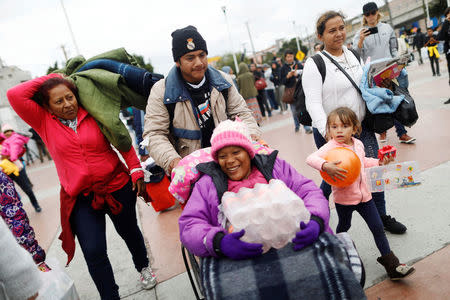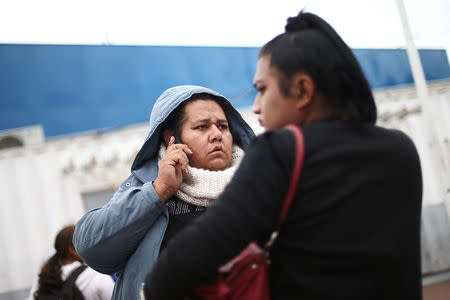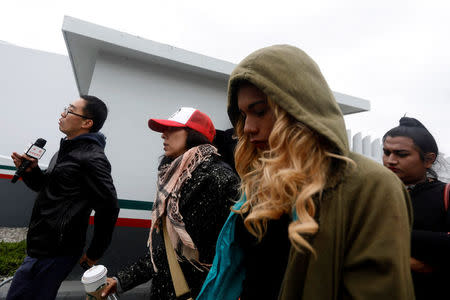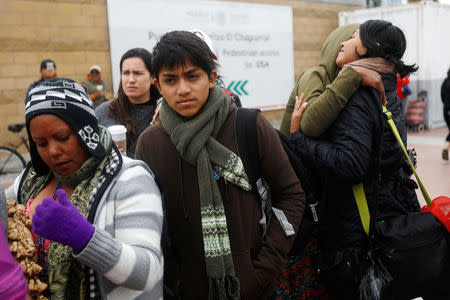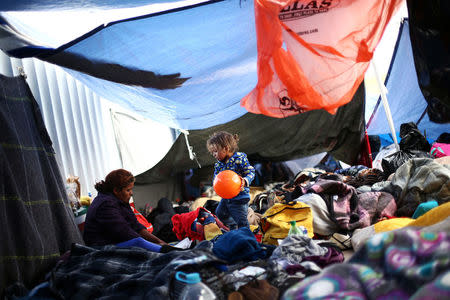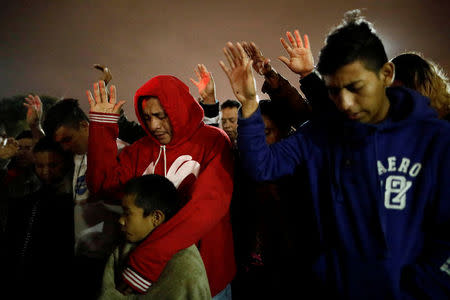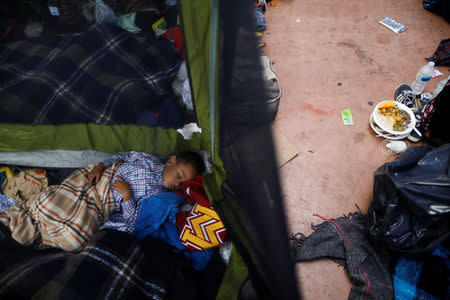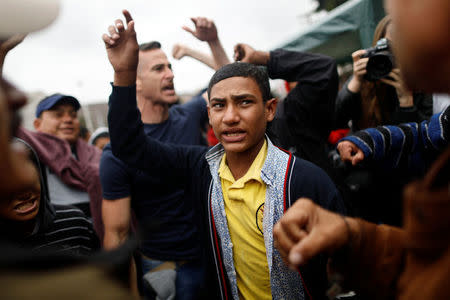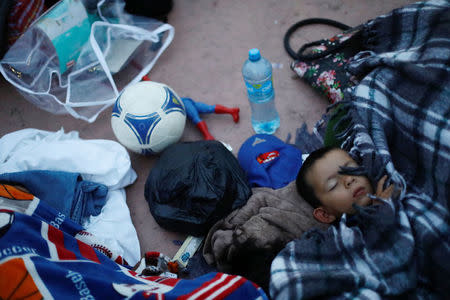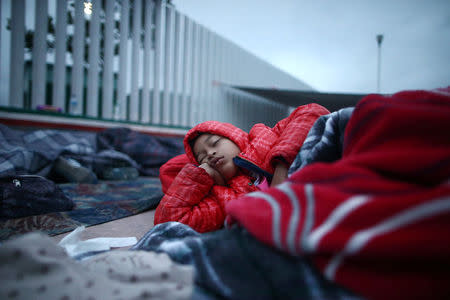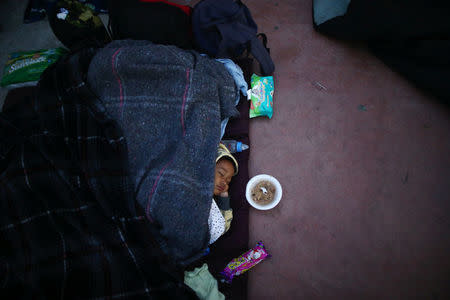U.S. officials allow trickle of 'caravan' migrants to make asylum case
By Delphine Schrank
TIJUANA, Mexico (Reuters) - U.S. immigration officials accepted a slow trickle of asylum applications on Tuesday from a caravan of Central American migrants camped at the U.S.-Mexico border, despite criticism from U.S. President Donald Trump of their attempt to enter the country.
Border agents slowly admitted 17 of the asylum seekers on Tuesday, according to organizers with the Pueblo Sin Fronteras immigrant rights group, after eight were allowed to request protection on Monday night.
That still left roughly 115 migrants waiting in a makeshift camp outside the busy border post in the Mexican city of Tijuana.
The weary group of migrants - who have already spent two cold nights at the border - showed no signs of breaking up as the afternoon passed.
News that more migrants were allowed into the port of entry on Tuesday meant those next on the list inched a little closer.
"Here's hoping," said 20-year-old Honduran Bryan Claros, on the possibility of being next on the list.
The caravan set off more than a month ago from southern Mexico on a 2,000-mile (3,220-km) trek to the California border, gathering people along the way.
Its progress has drawn attention from the U.S. news media after Trump demanded such groups be denied entry and that stronger immigration laws be enacted.
Trump's hard line against illegal immigration has been a centrepiece of his presidency, as he pursues an "America First" agenda that includes a proposed wall along the U.S.-Mexico border that he has said is needed to stem the flow of immigrants and drug trafficking.
But on asylum applicants, the Trump administration's hands are tied by international rules obliging the United States to accept some applications. Most in the caravan said they were fleeing death threats, extortion and violence from street gangs.
Bundled in blankets and donated clothes to ward off the cold, the mood on Tuesday morning was muted among the men, women and children camped in a square by the border crossing.
By the afternoon, in a narrow circle on the square, boys tossed a ball about and others chatted with new friends forged on the long journey north.
The majority of asylum claims by Central Americans are ultimately unsuccessful, resulting in detention and deportation. Asylum seekers must demonstrate a well-founded fear of persecution at home, most often from a state entity.
Central Americans fare badly in such claims because the state is rarely seen as directly responsible for the life-threatening situations they leave behind.
Crawling under her narrow tarpaulin tent, Yolanda Hieron Meraz from Honduras hurriedly packed a few clothes and a pillow to enter the port of entry with her 15-year-old son, a huge smile on her face.
But it was a conflicted moment for her as she left behind her common law partner, Jose Cristobal, 48, who waited soberly beside their tent. Cristobal, who tried to hold back his tears, knew he could not follow because his claim for asylum was probably not as strong.
(Additional reporting by Edgard Garrido in Tijuana, Dan Levine in San Diego, Sarah Lynch and Roberta Rampton in Washington and Frank Jack Daniel in Mexico City; editing by Daniel Flynn, Will Dunham and G Crosse)

